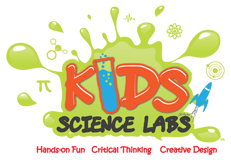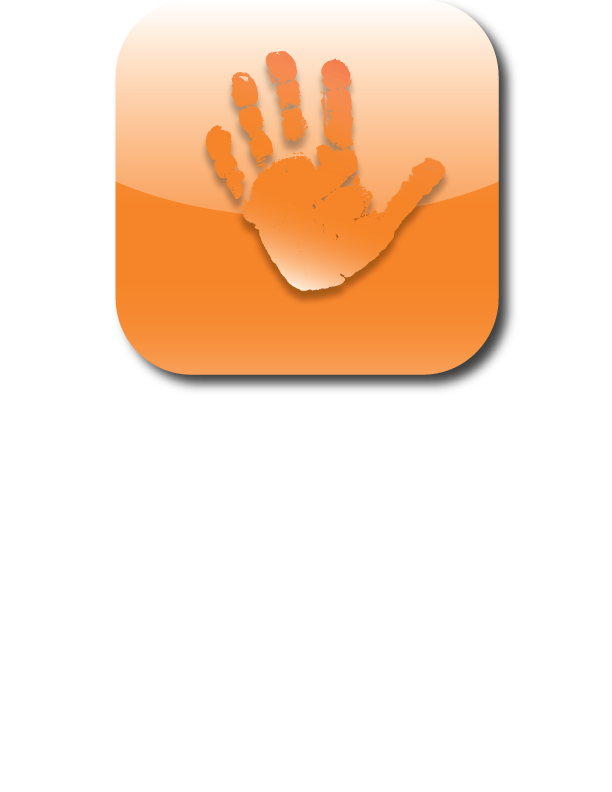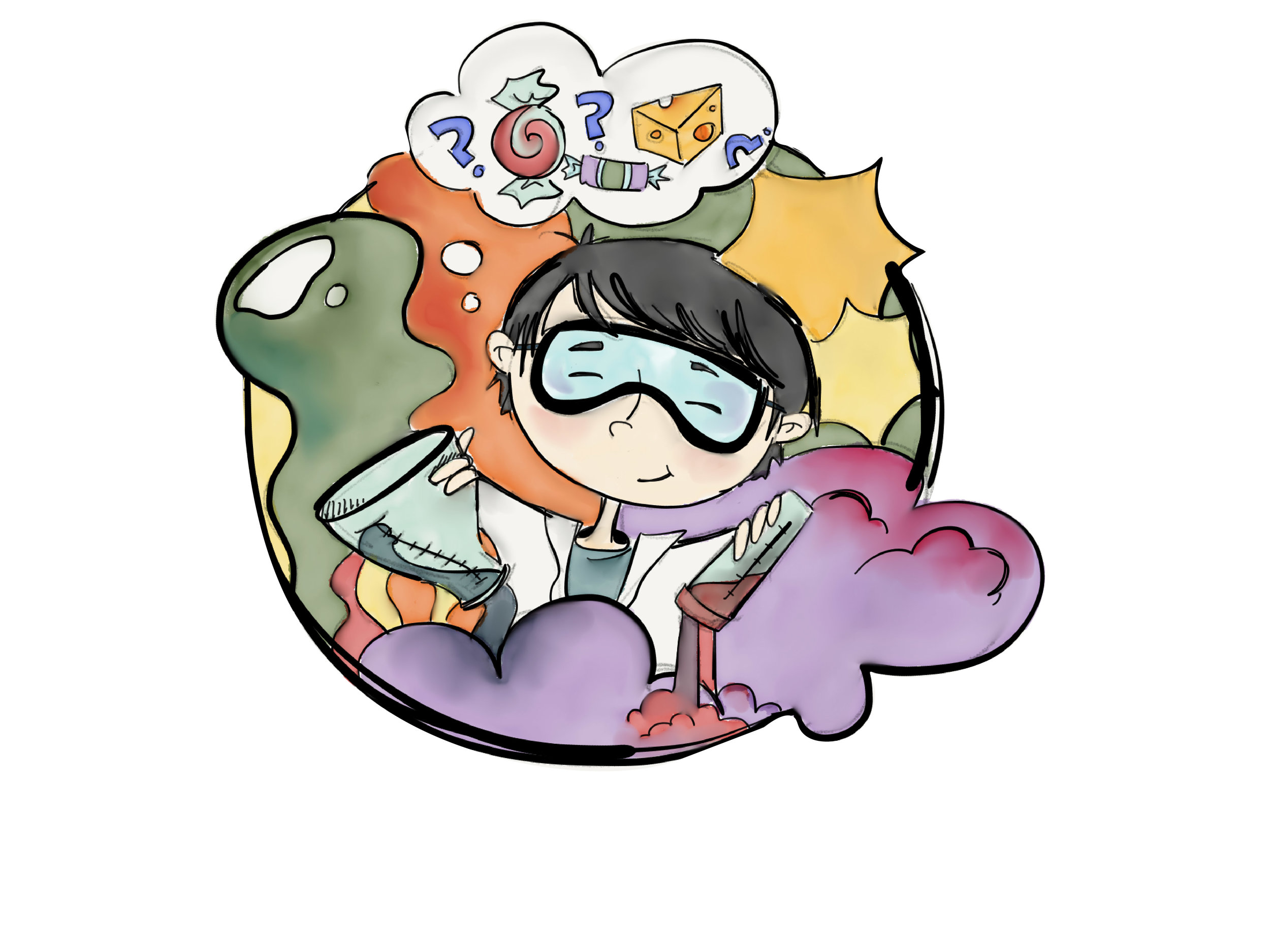Our classes are driven by questions kids ask everyday.
Wondering why can change the World. We believe this is true for scientists ages 2 to 100 yrs old, and our teaching faculty are passionate about inspiring kids of all ages to learn through the most engaging hands-on science and STEAM program available in the U.S. Every hands-on science class that we teach, is born from a child’s question, such as “Why does my cereal get so soggy (absorption)? or “Why does the grocery cart move when I push it (forces)?, or “Why can’t we take a plane to the Moon?” - followed by real experiments for kids 2-12, in a weekly 75-minute drop-off class.
We offer programming 12 months a year, all day, and at KSL it is 100% fun, 100% original content, and 100% hands-on science where kids are motivated to build their problem-solving skills in one of our beautiful hands-on science labs. Just as your child grows and changes, so do the benefits of the 300+ hands-on science classes at Kids Science Labs.
We are all curious about something. Hands-on science is simply investigating the questions that matter to us by physically doing something to learn. Kids ask so many good questions and many of us learn best by touching and experimenting with real stuff, rather than just reading, watching, or listening.
“A great place for kids to learn that science is really fun. The instructors are very passionate about what they do and are great at engaging kids. ”
How Do We Engage Kids in our Classes?
Every class that we design at Kids Science Labs begins with a fundamental question that is asked by kids everyday, and then hands-on science is used as a vehicle for engaging, discovering, and learning through actual experience, not just explanation. Each week, we introduce new classes for kids. We have some outstanding new classes for our students.
Kids are curious about how things work, and whether its through sports, dance, or exploring the sandbox at the park, we teach cool science to kids as young as 2 yrs old, to give them perspective, and start developing their creativity and need to innovate early, so they can outperform the rest of their lives. No need to wait until graduate school.
TODDLER DISCOVERY SCIENCE (24 – 42 MONTHS OLD)
At home, our 2-3 year olds are always exploring. They open cabinets, dump ingredients on the floor, mix their dinner, and build with blocks. A toddler’s natural curiosity about exploring the world is stimulated in our environment designed specifically for their rapidly developing minds. Neuroplasticity takes center stage, in this caregiver-child setting, where the experiments for our youngest scientists are focused on practicing both their fine and gross motor skills, enhancing their language acquisition, encouraging their discovery, and understanding of how things work from colors to viscous (thick) liquids. This is a 60-minute series with active engagement for both caregiver and toddler.
INNOVATORS (PRE-K – KINDERGARTEN)
As kids learn to express their own creativity, they venture into the classroom independently. In our Innovators Program, our teachers help kids develop the tools needed to approach experiments with a problem-solving, encourage their design choices, and help them innovate design solutions to bring home. Most importantly, we inspire a love of learning in our innovators, while cultivating their imagination and sense of wonder about the world. This is a 75-minute series that is drop-off, with a new class every week.
INVESTIGATORS (1ST – 3RD GRADE)
As kids evolve within our program, they progress to our class for our 1st-3rd graders. Our Investigators Program enables kids to learn the KSL System of Innovation that allows them build real life design principles and better appreciate how mistakes are natural outcomes hands-on experimentation. Students in our Investigators age group develop applied engineering and improve their growth mindset to stretch the limits of what they believe to be possible. This includes doing 3 – 4 experiments each week that help them develop real problem solving.
NEXGEN DESIGN LAB (4TH – 6TH GRADE)
Our LIFE’S Curriculum (Learning Innovation, Fun Engineering, and Science) is on full display in this class designed to provide opportunities for kids to develop greater abstract thinking and creative design skills. Our NexGen class experience challenges kids to tackle problems that require a higher level of critical thinking and problem solving. Through an integrated STEAM approach, we ignite kids passion and expand their creativity by applying real science to the question, with up to 50% of the NGSS-based class focused on engineering design.
Bringing Class to Life with Kids Science Labs
How do we decide what to teach?
Everyday kids are asking questions. At Kids Science Labs, we listen to their questions and turn their curiosity into real science classes that they love. When a child is asking why a fan makes that noise, or why their socks get wet, our team of experts uses those questions. We then generate real hands-on science experiences that build a growth mindset, expand problem solving, and enable kids to discover the world around them.
Each class that we create is listed in our LIFE’S Curriculum (Learning Innovation, Fun Engineering & Sience) program of 300+ original classes, categorized for ease for our parents into a series of six categories. These six foundations allow us to relate the series of classes we create during the academic year.
How Stuff Works - Explores everyday fun questions that engage a child's curiosity directly, such as How does a bike work? What's inside a toaster? Why do cars slide in the rain? What makes a cushion soft? and How a refrigerator works. This foundation breaks down everyday questions into building blocks that all kids can relate with.
Science Fundamentals - Children fundamentally know the basic rules of their world, like apples fall from trees and sharp objects will pop a balloon. Here we will investigate core science principles such as electricity, Newton's forces, magnetism, properties of materials, water, properties of light, density and measurement. Some common questions would include Why does honey move so slow? What is a magnet? What is gravity and how does it work? What made that balloon rise up?
Planet Earth & Green Technology - Children wonder about the natural world every day. Understanding the relationships between our environment, the solar system, animals, humans and energy sources is what this foundation is all about. Topics include How to clean up oil spills and water ways? Why beavers are so important to ecosystems? How to make their own rechargeable batteries? What's different about organic strawberries?
Creativity & Design - If your child likes to build and solve prolems, they will love creativity & design. While How Stuff Works breaks things down, Creativity & Design builds them back up. This foundation is all about how things are made, construction, aeronautics, and accessing their true creativity with hands-on science. Example questions explored would be how could you live in a mountain? Can planes fly up? How to build skyscrapers?
Physiology & Food Science - Does your child wonder why her heart beats, how her stomach works, or is she curious about why she needs to eat healthy foods? Kids will turn these questions into hands-on experiments that teach them the mechanisms and functions of the human body as well as the relationship between food, nutrition and energy. This series brings the concepts together to explore topics such as Where did the burger go? What does our heart look like? How to dissect a bug? Why does bread get stale? What is a cinnamon and why does it smell so good? What exactly is "taste"?
Toddler Discovery Science, which offers individual discovery stations for toddlers to explore science. At home, our 2-3 yr olds are always exploring, they open cabinets, dump ingredients on the floor, and mix their dinner. All of these activities are science and at Kids Science Labs, we don't hesitate to call pancake mix a viscous solution because that's just a word kids will absorb and apply. Our Toddler Discovery Science classes are for kids to explore in groups with 6-8 parent/child families, where they have the freedom to engage, ask, and understand natural things they are curious about.








